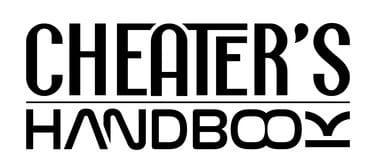How to Handle Rejection Gracefully?

Rejection is an inevitable part of life that can often be emotionally challenging and difficult to navigate. Whether it’s a romantic rejection, job rejection, or rejection in friendships or social circles, learning how to handle rejection gracefully is essential for maintaining our emotional well-being and building resilience. Understanding rejection and its impact is the first step towards effectively managing it.
Handling rejection gracefully is important for several reasons. Firstly, it allows us to maintain our emotional well-being by preventing negative emotions such as anger, resentment, or self-doubt from consuming us. Secondly, handling rejection with grace helps us build resilience, enabling us to bounce back from setbacks and continue pursuing our goals. It also presents an opportunity for growth and self-reflection, allowing us to learn from rejection and develop a stronger sense of self.
To handle rejection gracefully, there are several tips that can be implemented. Firstly, acknowledging and accepting our emotions is crucial. It’s okay to feel disappointed or hurt, and allowing ourselves to process these feelings is a healthy step towards healing. Reframing rejection as an opportunity for growth can also help in shifting our mindset. Viewing rejection as a redirection towards something better can be empowering. Practicing self-compassion, seeking support from others, and learning from rejection are additional strategies to handle rejection gracefully.
Different types of rejection may require specific approaches. Romantic rejection, for example, may involve maintaining open communication, respecting boundaries, and focusing on self-care. Job rejection might involve seeking feedback, networking, and continued job searching. Rejection in friendships or social circles may require exploring new social opportunities and building connections with like-minded individuals.
Overcoming the fear of rejection is also important in handling it gracefully. Challenging negative beliefs and practicing rejection therapy, which involves voluntarily seeking out situations where rejection is likely, can help in desensitizing ourselves to the fear of rejection and developing a healthier perspective.
Finally, taking inspiration from celebrities who have handled rejection gracefully can provide encouragement and motivation. Many successful individuals have faced rejection before achieving their goals, and their stories can serve as a reminder that rejection is not a reflection of our worth or potential.
Understanding Rejection
Understanding rejection is crucial for dealing with it gracefully.
Rejection is a common part of life, whether it’s in relationships, job applications, or creative pursuits.
Rejection is an ordinary aspect of life, occurring in relationships, job applications, or creative endeavors.
It’s important to remember that rejection does not define your worth or abilities. Instead, see it as an opportunity for growth and learning.
It is crucial to remember that rejection does not determine your value or skills. Instead, view it as a chance to grow and learn.
Understand that rejection is often subjective and based on individual preferences or circumstances.
Recognize that rejection is frequently subjective and influenced by personal preferences or circumstances.
By reframing rejection as redirection or an opportunity for something better, you can maintain a positive mindset and bounce back stronger.
True history: A true historical example is Walt Disney, who encountered rejection and was told he lacked imagination and had no worthwhile ideas. Rather than being discouraged, he used this rejection as fuel for his determination and ultimately built Disney into a global entertainment empire.
Why Is It Important to Handle Rejection Gracefully?
When faced with rejection, the way we handle it can make all the difference. In this section, we’ll explore why it is crucial to handle rejection gracefully. We’ll dive into maintaining emotional well-being and building resilience, uncovering strategies and insights that can help us navigate the challenges rejection brings. So, let’s discover the importance of maintaining composure and bouncing back stronger when faced with life’s inevitable rejections.
Maintaining Emotional Well-being
Maintaining emotional well-being is crucial when dealing with rejection. Here are some steps to help you navigate through it gracefully:
- Acknowledge your emotions: Recognize and validate your feelings to process them effectively.
- Reframe rejection: See it as an opportunity for personal growth and learning rather than a reflection of your worth.
- Practice self-compassion: Be kind and understanding towards yourself during this challenging time.
- Seek support from others: Connect with friends, family, or a therapist to share your feelings and gain perspective.
- Learn from rejection: Extract valuable lessons from the experience to enhance personal and emotional growth.
By following these steps, you can maintain a healthy emotional well-being while handling rejection gracefully.
Building Resilience
Developing resilience is essential when it comes to handling rejection gracefully. Here are some steps to naturally build resilience:
- Embrace failure as a regular part of life.
- Adopt a growth mindset, firmly believing that setbacks are opportunities for personal growth.
- Cultivate self-compassion by being kind to yourself, especially during challenging times.
- Build a strong support system by seeking help and guidance from others.
- Maintain an optimistic perspective and focus on the valuable lessons learned from rejection.
Tips for Handling Rejection Gracefully
Rejection can be tough, but there are ways to handle it gracefully. In this section, we’ll discover some valuable tips that can help navigate those moments of disappointment. From acknowledging your emotions to reframing rejection as an opportunity for growth, we’ll explore various strategies for handling rejection gracefully. We’ll delve into the importance of practicing self-compassion, seeking support from others, and learning valuable lessons from rejection experiences. Together, we can develop resilience and thrive even in the face of rejection.
Acknowledge Your Emotions
When facing rejection, it is crucial to acknowledge your emotions in order to process them and move forward. It is completely normal to experience feelings of sadness, disappointment, or even anger when you are rejected. By recognizing and accepting these emotions, you are able to take important steps towards healing and personal growth. Acknowledging your emotions allows you to validate your feelings and avoid suppressing them, which can have detrimental long-term effects on your mental and emotional well-being. It serves as an essential first step in gracefully handling rejection.
Reframe Rejection as an Opportunity for Growth
When faced with rejection, reframing it as an opportunity for growth can be a powerful mindset. It allows you to shift your perspective and see rejection as a chance to learn, improve, and discover new possibilities. By embracing this mindset, you can bounce back stronger and develop resilience. Instead of dwelling on negative emotions, focus on the lessons and insights rejection provides.
Use it as motivation to push yourself out of your comfort zone and strive for personal and professional growth. Reframing rejection as an opportunity for growth empowers you to turn setbacks into stepping stones towards success. Pro-tip: Embrace rejection as a catalyst for self-improvement and development.
Practice Self-Compassion
Practice Self-Compassion is of utmost importance when it comes to gracefully handling rejection. In order to incorporate Practice Self-Compassion into your approach, here are a few steps to follow:
- Acknowledge your emotions and grant yourself permission to feel upset or disappointed.
- Remind yourself that rejection is a normal and unavoidable aspect of life.
- Engage in activities that bring you joy and comfort as a way to practice self-care.
- Be kind to yourself and refrain from blaming or engaging in negative self-talk.
- Seek support from loved ones who can offer encouragement and understanding.
By consistently adhering to the practice of Self-Compassion, you can effectively navigate through rejection, build resilience, and preserve your emotional well-being.
Seek Support from Others
Seeking support from others can greatly assist in handling rejection gracefully. Here are some ways to seek support when facing rejection:
- Reach out to trusted friends or family members who can provide emotional support and offer a listening ear.
- Consider seeking professional help from therapists or counselors who are trained in aiding individuals in navigating through difficult emotions and experiences.
- Join support groups or online communities where you can connect with others who have undergone similar experiences and gain insights and encouragement.
- Engage in activities or hobbies that allow you to connect with like-minded individuals and create a sense of belonging and support.
- Utilize resources such as self-help books, podcasts, or online forums that offer guidance and advice on coping with rejection.
Learn from Rejection
- Acknowledge your emotions: It’s normal to feel hurt and disappointed after being rejected. Allow yourself to feel these emotions without judgment.
- Reframe rejection as an opportunity for growth: Instead of seeing rejection as a failure, view it as a chance to learn and improve. Understand that rejection is a natural part of life.
- Practice self-compassion: Be kind to yourself and avoid self-blame. Treat yourself with understanding and care.
- Seek support from others: Reach out to friends, family, or a support group for guidance and encouragement. Share your experiences and listen to their insights.
- Reflect on the experience and identify areas for improvement. Use the feedback received from the rejection to make positive changes in your approach or skills.
By learning from rejection, we can develop resilience, gain new perspectives, and ultimately increase our chances of future success.
Dealing with Specific Types of Rejection
Dealing with rejection can be tough, but understanding how to handle specific types of rejection can make the process a little easier. In this section, we’ll explore different types of rejection – from romantic to job-related to friendships or social circles. Get ready to discover practical strategies and insights to navigate through these challenging experiences. Remember, rejection is not the end, but an opportunity for growth and resilience. Let’s dive in and learn how to handle rejection gracefully!
Romantic Rejection
Romantic rejection can be a painful experience that can significantly impact personal growth and emotional well-being. It is crucial to handle this kind of rejection gracefully and with resilience. Here are some essential tips to help you navigate romantic rejection with grace:
1. Acknowledge and honor your emotions: It is important to allow yourself to feel the pain and disappointment that comes with romantic rejection. By acknowledging these emotions, you can begin the healing process.
2. Reframe rejection as an opportunity for growth: Rather than viewing rejection as a setback, see it as a chance to learn more about yourself and what you truly desire in a relationship. Use this experience as a stepping stone towards personal growth and self-discovery.
3. Practice self-compassion during this challenging time: Treat yourself with kindness, understanding, and patience. Be gentle with yourself as you heal and recover from the feelings of rejection.
4. Seek support from others: Reach out to supportive friends, family, or seek professional guidance to help you navigate through the process of healing. Having a strong support system can provide comfort and guidance during this difficult time.
5. Embrace the lessons from rejection: Use the experience as an opportunity for introspection and self-improvement. Reflect on the aspects of yourself and your life that can be enhanced and grow from the insights gained through rejection.
Job Rejection
Receiving a job rejection can be disheartening, but it’s important to handle it gracefully and turn it into a learning opportunity. Acknowledge your emotions: It’s natural to feel disappointed or upset, so take some time to process your feelings. Reframe job rejection: Instead of seeing it as a personal failure, view it as redirection towards a better opportunity. Practice self-compassion: Be kind to yourself and remind yourself of your worth and achievements. Seek support: Reach out to friends, family, or mentors for encouragement and guidance. Learn from job rejection: Reflect on the experience to identify areas for improvement and growth.
Rejection in Friendships or Social Circles
In friendships or social circles, experiencing rejection in Friendships or Social Circles can be challenging and may have an impact on our emotional well-being and self-esteem. Here are some tips for handling rejection gracefully in these situations:
- Acknowledge your emotions: Allow yourself to feel the disappointment or sadness that comes with rejection in Friendships or Social Circles. It is important to validate your emotions.
- Reframe rejection as an opportunity for growth: Instead of dwelling on the rejection in Friendships or Social Circles, try to see it as a chance to learn, grow, and find new connections.
- Practice self-compassion: Be kind to yourself and remember that rejection in Friendships or Social Circles does not define your worth. Treat yourself with the same empathy and understanding you would offer a friend in a similar situation.
- Seek support from others: Reach out to trusted friends or loved ones who can provide comfort, guidance, and encouragement during this time of rejection in Friendships or Social Circles.
- Learn from rejection: Reflect on the experience of rejection in Friendships or Social Circles and identify any areas for personal growth or improvement. Use the rejection as motivation to become a better friend or improve social interactions.
How to Overcome Fear of Rejection
Overcoming the fear of rejection is no easy feat, but it’s a crucial step towards personal growth and success. In this section, we’ll dive into effective techniques that can help you conquer your fear and bounce back stronger. From challenging negative beliefs that hold you back to embracing rejection therapy as a powerful learning tool, we’ll equip you with practical strategies to handle rejection gracefully. It’s time to break free from the shackles of fear and unlock your true potential.
Challenge Negative Beliefs
To overcome and challenge negative beliefs when facing rejection, follow these steps:
- Recognize the negative beliefs: Identify the thoughts or beliefs that are causing distress.
- Question the beliefs: Ask yourself if these beliefs are based on evidence or are influenced by fear or insecurity.
- Find alternative beliefs: Replace negative beliefs with more positive and empowering ones that reflect your strengths and abilities.
- Gather evidence: Look for examples and experiences that counteract the negative beliefs and support more positive ones.
- Practice affirmations: Repeat affirming statements to yourself to reinforce the new beliefs and challenge the negative ones.
Remember, even successful individuals have faced rejection. Take Leonardo DiCaprio, for example, who encountered numerous rejections early in his career but persisted and eventually won an Oscar for his exceptional performances.
Practice Rejection Therapy
Rejection therapy is a valuable tool for personal growth and building resilience that involves intentionally seeking out situations where rejection is likely to occur in order to practice rejection therapy and overcome the fear and negative emotions associated with rejection.
- To practice rejection therapy, step outside your comfort zone and engage in activities or situations where rejection is more likely, such as asking for a discount at a store or reaching out to someone for a favor.
- To develop emotional resilience, embrace rejection as a learning opportunity and practice rejection therapy to develop the ability to bounce back quickly from negative experiences.
- As part of practicing rejection therapy, challenge negative beliefs you may have about rejection, such as ‘rejection means I’m not good enough,‘ and replace them with more positive and realistic thoughts.
- Rejection therapy can also be used to build self-confidence and develop a sense of worthiness independent of others’ opinions.
- When practicing rejection therapy, it’s important to learn from each rejection experience and reflect on any areas of improvement or lessons learned that can contribute to personal growth.
Celebrities Who Have Handled Rejection Gracefully
- J.K. Rowling, the author of Harry Potter, faced numerous rejections before finding a publisher who believed in her work.
- Despite being told she wasn’t fit for television, Oprah Winfrey persevered and became one of the most successful TV hosts.
- Steven Spielberg faced rejection from film schools but went on to become one of the most renowned directors in the industry.
- Considered one of the greatest basketball players, Michael Jordan was initially cut from his high school team but used the rejection as motivation to excel.
- Meryl Streep is now considered one of the greatest actors of all time, but she faced rejection early in her career before achieving immense success.
Frequently Asked Questions
How can having a secure attachment style help in handling rejection gracefully?
A secure attachment style can help in handling rejection gracefully because individuals with this style view themselves as worthy and lovable. This self-assurance allows them to understand that rejection is not a reflection of their worth, but rather a situational outcome. They are more likely to bounce back from rejection and maintain healthy self-esteem.
Is it important to seek professional help when dealing with rejection?
Seeking professional help, such as speaking with a licensed marriage and family therapist like Leslie Becker-Phelps or a counselor like Lori Gottlieb, can be beneficial when dealing with rejection. These professionals can provide guidance, support, and adaptive techniques to help individuals process their emotions and build resilience.
Why does handling rejection gracefully relate to our evolutionary facet?
Handling rejection gracefully relates to our evolutionary facet because our need for acceptance and connection comes from our evolutionary history. Being in groups was necessary for survival, so rejection goes against this primal need. By handling rejection gracefully, we demonstrate our ability to adapt and maintain healthy social relationships.
How can understanding the reasons behind rejection help in handling future rejections?
Understanding the reasons behind rejection can help in handling future rejections by increasing self-awareness. It allows individuals to assess their own emotions, intentions, and behaviors. This self-reflection helps in making adjustments and improvements, ultimately leading to healthier and more fulfilling relationships in the future.
What are some adaptive techniques for handling rejection gracefully?
Some adaptive techniques for handling rejection gracefully include taking time for self-reflection, seeking support from loved ones, engaging in self-care activities, and focusing on personal growth. These techniques can help individuals move forward from rejection and build resilience.
What should you consider when faced with a rejection of an amazing opportunity, such as a dream job or marriage proposal?
When faced with the rejection of an amazing opportunity, it is important to consider the value of self-reflection. Take time to reassess the situation, your emotions, and your intentions. This can provide valuable insights into the future and help redirect your path towards new opportunities that align with your personal growth and aspirations.
My Go-To Platform for Flings, Affairs, and MILFs
Looking for top-notch flings, affairs, or MILFs? Skip the rest, AdultFriendFinder is the gold standard. Zero bots, zero fakes—just real connections. I've scored big in multiple cities. Sign up now, it's FREE!










